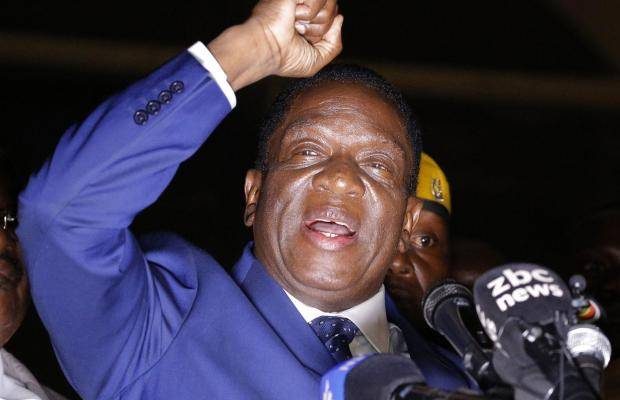On Wednesday, two weeks after fleeing to South Africa, a beaming Emmerson Dambudzo Mnangagwa emerged from his car to the thundering chants of “Garwe! Garwe! Garwe!”.
The roar only grew louder as the 75-year-old later took to the stage to address the cheering crowds.
“Today, we are witnessing the beginning of a new and unfolding democracy,” he told the thousands who had gathered to welcome home the man they believe can take Zimbabwe into a new era.
Popularly known as “Garwe”, or crocodile in Shona, after his days as a member of the 1960s Crocodile Gang that waged anti-colonial resistance acts against the white minority regime of the time, Mnangagwa is set to become Zimbabwe’s second leader and third president since independence in 1980.
Mnangagwa – also known as “Ngwena” (a totemic name for a crocodile) or “E.D.”, after his initials – has long been seen as the man most likely to replace his mentor and Zimbabwe’s longtime leader, Robert Mugabe.
Mnangagwa’s political shrewdness and ability to survive seemingly dire situations have seen him grow into his nickname.
Tales of his dramatic escape from Zimbabwe shortly after his firing as vice president could make for an action movie script, and have earned him wide popularity and sympathy among many Zimbabweans.
Many believe he represents change and could turn the country’s fortunes around.
During his vice presidency, Mnangagwa introduced the Command Agriculture scheme, an African Development Bank-backed programme designed to help communities become more self-sufficient.
Launched two years ago, the initiative is still in its infancy. But some analysts believe it has the potential to return Zimbabwe to its status as the breadbasket of the region.
As a prominent ZANU-PF official, Mnangagwa backed the seizures of white-owned commercial farms at the turn of the millennium.
However, in his home province of the Midlands he reportedly “secretly” protected some white farmers from being driven from their lands.
According to leaked intelligence reports reviewed by Reuters news agency, re-engaging white farmers could be one of the potential priorities in a post-Mugabe era.
“Mnangagwa realises he needs the white farmers on the land when he gets into power … he will use the white farmers to resuscitate the agricultural industry, which he reckons is the backbone of the economy,” reads part of the report.
In his first public remarks since fleeing into exile for safety, Mnangagwa expressed keenness in reshaping Zimbabwe into a more inclusive nation across the lines of race and political affiliation.
His vision for the country, he said, also includes re-engagement with the international community.
As Mugabe’s second-in-command, he has brokered multi-million dollar trade deals with Russia, China and South Africa.
In 2015, he led trade delegations to Europe in an effort to re-open lines of communication with the West which, in 2001, imposed targeted sanctions on top government leaders, including Mnangagwa, during one of Zimbabwe’s darkest decades of political and human rights violations.
Much to the chagrin of Mugabe, Mnangagwa has built up a rapport with foreign investors, the International Monetary Fund and local diplomats, including Britain’s ambassador to Zimbabwe, Catriona Laing.
Despite denials by Laing, the ambassador was criticised by the Movement for Democratic Change (MDC-T) opposition party for backing an “incorrigible regime”.
A lot of change is expected in the republic of Zimbabwe during the reign of ‘Garwe’.

